Emergency HVAC Kirkham
Find top 24/7 HVAC Repair in Kirkham
Get multiple Emergency AC Repair quotes for your project today! Compare profiles, reviews, accreditations, portfolio, etc... and choose the best service.

John Cayley Plumbing and Heating Engineer
554 reviews53 Barrowford Road, Colne, BB8 9QP, GBAs a Gas Safe registered engineer with over 30 years' experience, I'm able to quickly diagnose and resolve all manner of gas boiler faults, including leaks, shutdowns and intermittent hot water. I'm a fully qualified Gas Safe registered engineer bringing over 30 years' experience and a wealth of knowledge to every job. I've built a reputation throughout the Burnley and Pendle area for honesty, reliability and excellent workmanship. I'm able to offer a personal service to my customers, many of whom have me return each year to carry out servicing of their gas boiler and other gas appliances. My customers are reassured that they will see the same friendly face and can expect the same high standard of work each time their engineer attends their property. This continuity of care means that I will get to know your central heating system inside out and will also become familiar with yours and your family's needs.
- Services
- Why Us?
- Accreditations
- Our Team
- Testimonials
- Gallery
Get Quote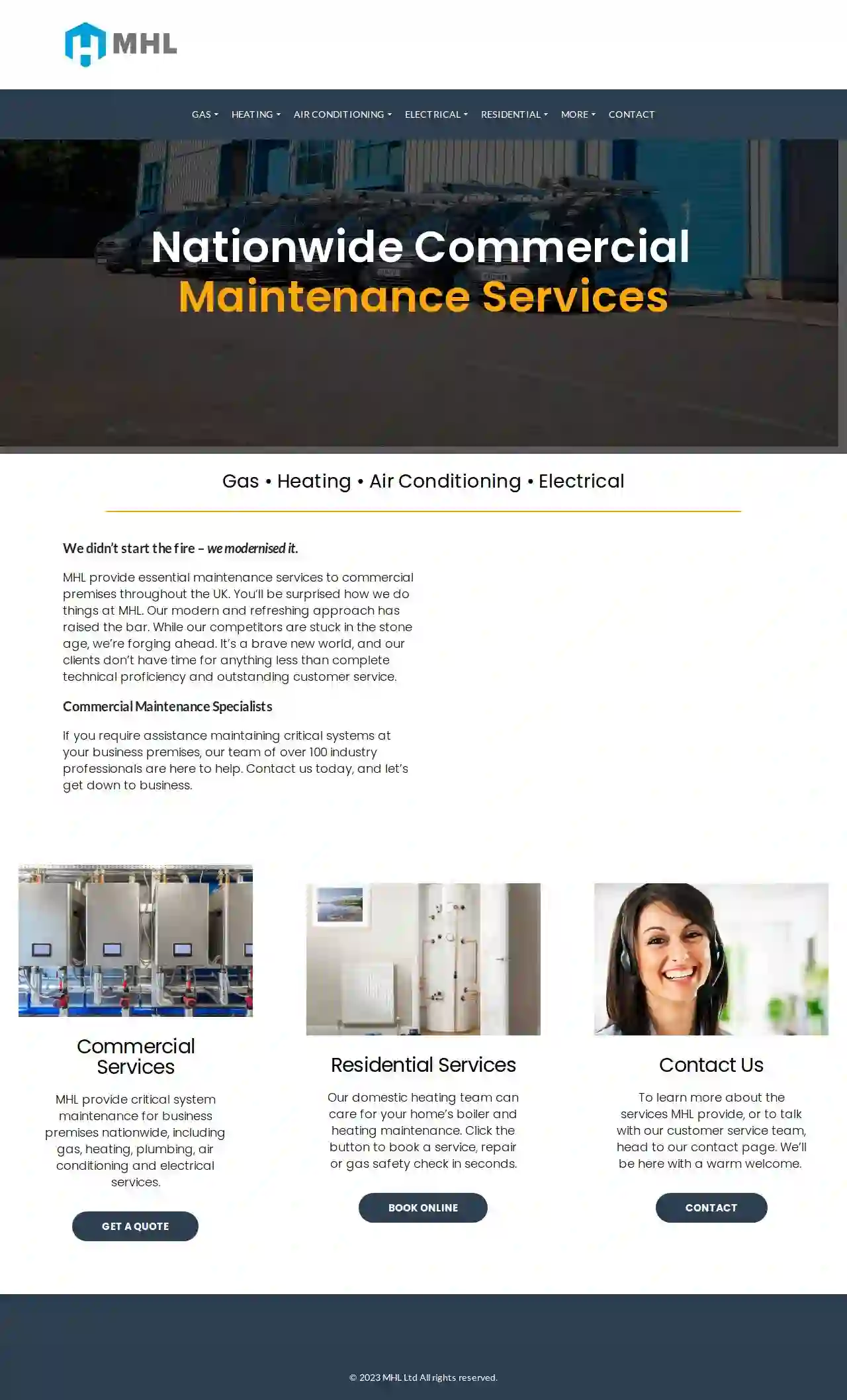
MHL Ltd
4.9106 reviewsChorley, GBMHL provide essential maintenance services to commercial premises throughout the UK. You'll be surprised how we do things at MHL. Our modern and refreshing approach has raised the bar. While our competitors are stuck in the stone age, we're forging ahead. It's a brave new world, and our clients don't have time for anything less than complete technical proficiency and outstanding customer service. Commercial Maintenance SpecialistsIf you require assistance maintaining critical systems at your business premises, our team of over 100 industry professionals are here to help. Contact us today, and let's get down to business. get a quote Commercial Services MHL provide critical system maintenance for business premises nationwide, including gas, heating, plumbing, air conditioning and electrical services. get a quote book online Residential Services Our domestic heating team can care for your home's boiler and heating maintenance. Click the button to book a service, repair or gas safety check in seconds. Book Online contact Contact Us To learn more about the services MHL provide, or to talk with our customer service team, head to our contact page. We'll be here with a warm welcome. Trustpilot © 2023 MHL Ltd All rights reserved.
- Services
- Why Us?
- Gallery
Get Quote
Gas Tech Plumbers Ltd
4.8125 reviewsCasterton Avenue, Burnley, BB10 2PB, GBGas Tech have been serving households, landlords and businesses for the past 12 years. Our workforce of highly trained gas engineers are here to support your installation, repair and maintenance requirements for plumbing, gas services and central heating. We aim to build on the trust built over the years from our loyal base of customers in Burnley, Blackburn, Darwen, Rawntenstall, Padiham, Accrington, Clitheroe, Nelson, Colne, Barrowford, Skipton & Barnoldswick. Get in touch to see how we can help.
- Services
- Why Us?
- Testimonials
- Gallery
Get Quote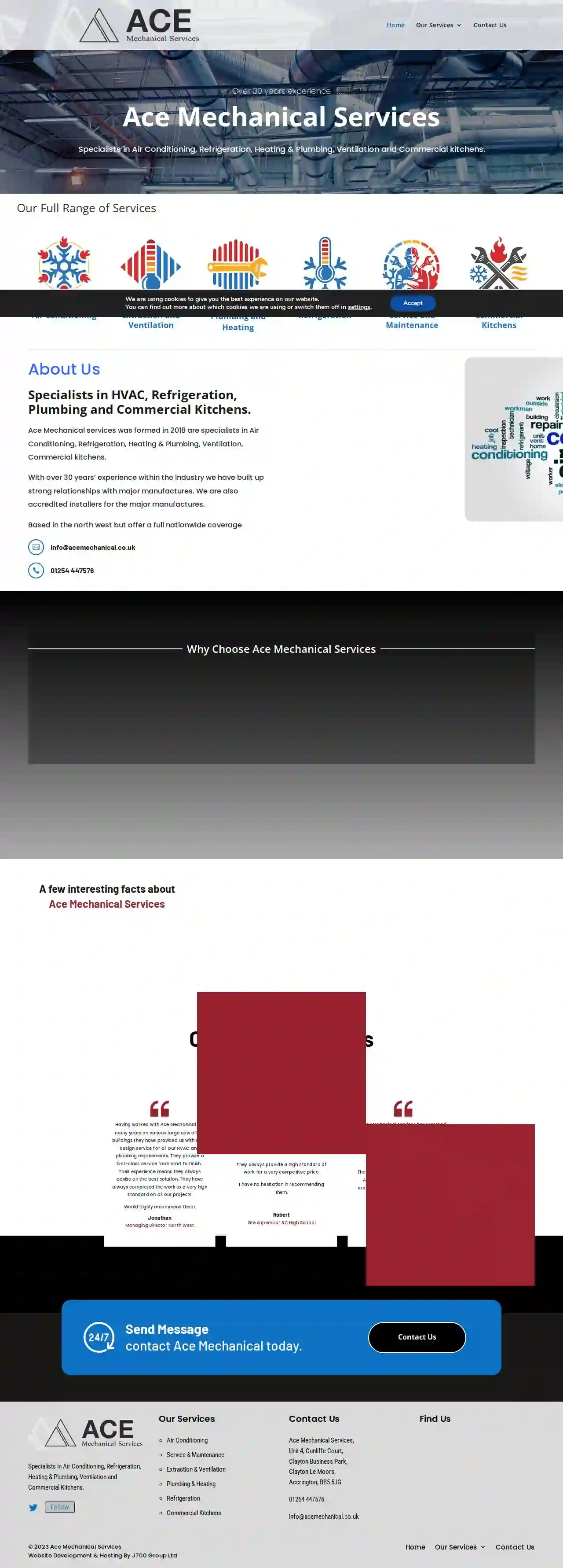
Ace Mechanical Services
51 reviewsUnit 4, Cunliffe Court, Clayton Business Park, Clayton Le Moors, Accrington, BB5 5JG, GBOver 30 years experience, Ace Mechanical Services, Specialists in Air Conditioning, Refrigeration, Heating & Plumbing, Ventilation and Commercial kitchens. Our Full Range of Services, Air Conditioning, Extraction and Ventilation, Plumbing and Heating, Refrigeration, Service and Maintenance, Commercial Kitchens. With over 30 years’ experience within the industry we have built up strong relationships with major manufactures. We are also accredited installers for the major manufactures. Based in the north west but offer a full nationwide coverage.
- Services
- Why Us?
- Accreditations
- Testimonials
- Gallery
Get Quote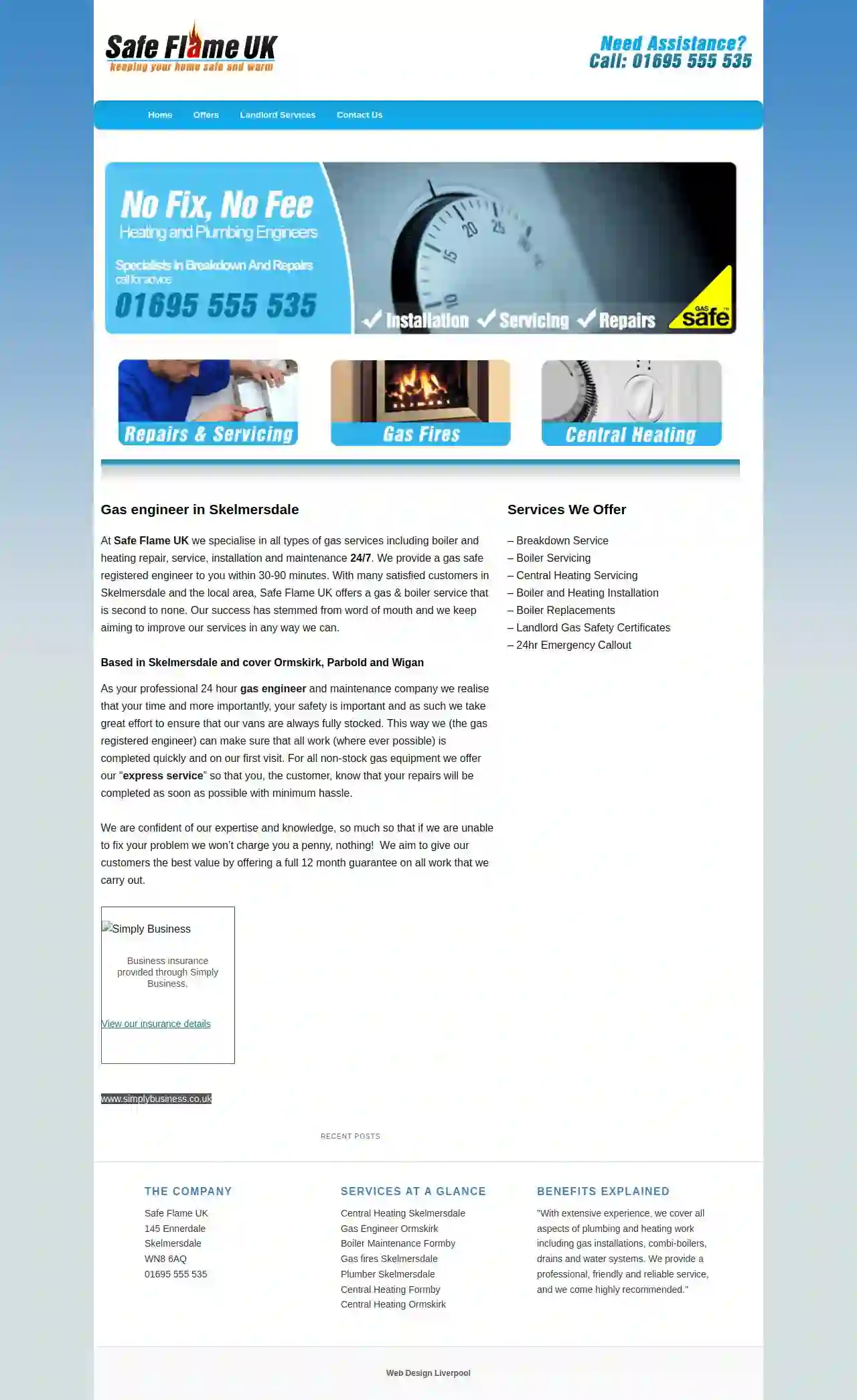
Safe Flame UK
59 reviews145 Ennerdale, Skelmersdale, WN8 6AQ, GBSafe Flame UK is a gas engineering company based in Skelmersdale, serving the surrounding areas including Ormskirk, Parbold, and Wigan. We specialize in all types of gas services, including boiler and heating repair, service, installation, and maintenance, available 24/7. Our team of Gas Safe registered engineers aims to provide a quick and efficient service, often completing work on the first visit thanks to our fully stocked vans. We understand the importance of your time and safety, and we strive to minimize any hassle for our customers. We offer a 12-month guarantee on all work carried out and are confident in our expertise. If we can't fix your problem, we won't charge you a penny. Our success is built on word-of-mouth recommendations, and we are constantly looking for ways to improve our services.
- Services
- Why Us?
- Accreditations
- Gallery
Get Quote
Gel-clear HVACR drainage
4.918 reviewsChorley, GBGel Clear is a company that provides solutions for condensate drainage, HVAC cleaning, and maintenance products. They offer a range of products, including condensate drain tablets, condensate pumps, drainage retrofit solutions, and more. Their products are designed to deliver cost savings and efficiency in HVACR drainage. The company works with OEM's, retailers, and contractors to provide their products and services.
- Services
- Why Us?
- Gallery
Get Quote
Bluebird Refrigeration & Air Conditioning Ltd
13 reviewsSkelmersdale, GBBluebird Refrigeration is a leading provider of commercial refrigeration and air conditioning repair services throughout England and North Wales. With a team of highly skilled and experienced engineers strategically located across the country, we pride ourselves on delivering rapid call-out times and exceptional customer service. We understand the critical role that refrigeration and air conditioning play in various industries, and we are committed to ensuring that your equipment is always operating at peak performance. Whether you require immediate attention for a malfunctioning unit or need regular maintenance to prevent future issues, our team is here to help. At Bluebird Refrigeration, we take pride in our reputation for quality workmanship, reliability, and customer satisfaction. Our commitment to excellence has earned us numerous positive reviews from clients across a wide range of sectors, including butchers, bakers, produce shops, bars, clubs, coffee shops, fast food outlets, restaurants, convenience stores, supermarkets, distribution centres, factories, high street stores, garden centres, beauty therapy, fitness centres, holiday parks, and offices. We offer a comprehensive range of services, including: * Commercial Refrigeration Repair * Air Conditioning Repair * Refrigeration Servicing * Air Conditioning Servicing * Refrigeration Installation * Air Conditioning Installation Our team is equipped to handle all types of refrigeration and air conditioning systems, from small domestic units to large industrial installations. We use the latest diagnostic tools and techniques to ensure accurate and efficient repairs. Contact Bluebird Refrigeration today for a free quote and experience the difference that our expertise and commitment to customer satisfaction can make.
- Services
- Why Us?
- Gallery
Get Quote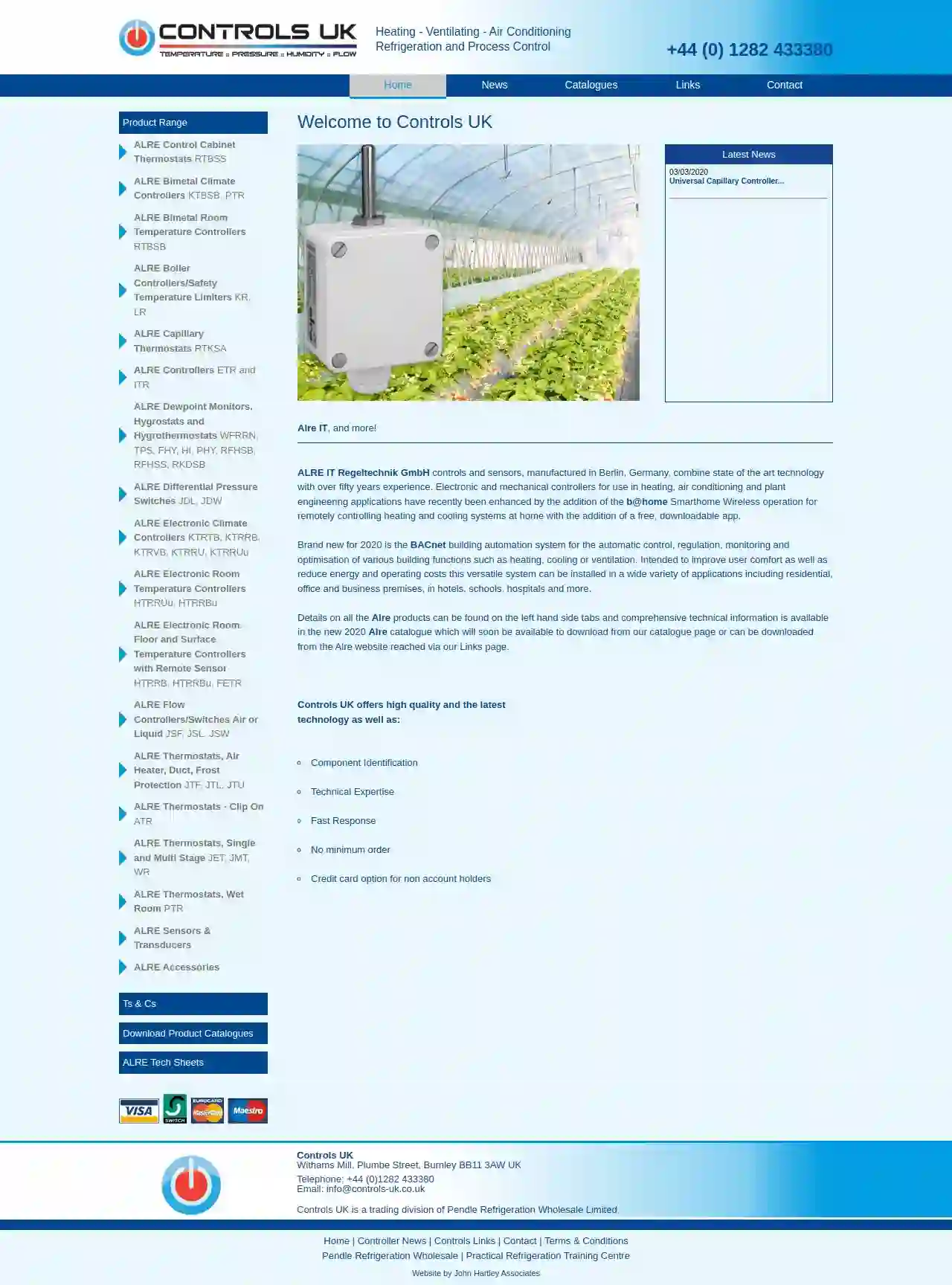
Controls (UK) Ltd
Withams Mill, Plumbe Street, Burnley, BB11 3AW, GBWelcome to Controls UK, a trading division of Pendle Refrigeration Wholesale Limited. We offer high quality and the latest technology in heating, air conditioning and plant engineering applications. Our products include ALRE Control Cabinet Thermostats, RTBSS, ALRE Bimetal Climate Controllers, KTBSB, PTR, and more. We also provide technical expertise, fast response, no minimum order, and credit card option for non-account holders. Our sister company, Pendle Refrigeration Wholesale Ltd, offers Bock compressors and condensers, Frimetal evaporators, Carly refrigeration parts, Yellow Jacket and other service tools, plus a full range of spares and consumables, refrigerants and oils. Our website is designed and hosted by John Hartley Associates Limited.
- Services
- Why Us?
- Accreditations
- Gallery
Get Quote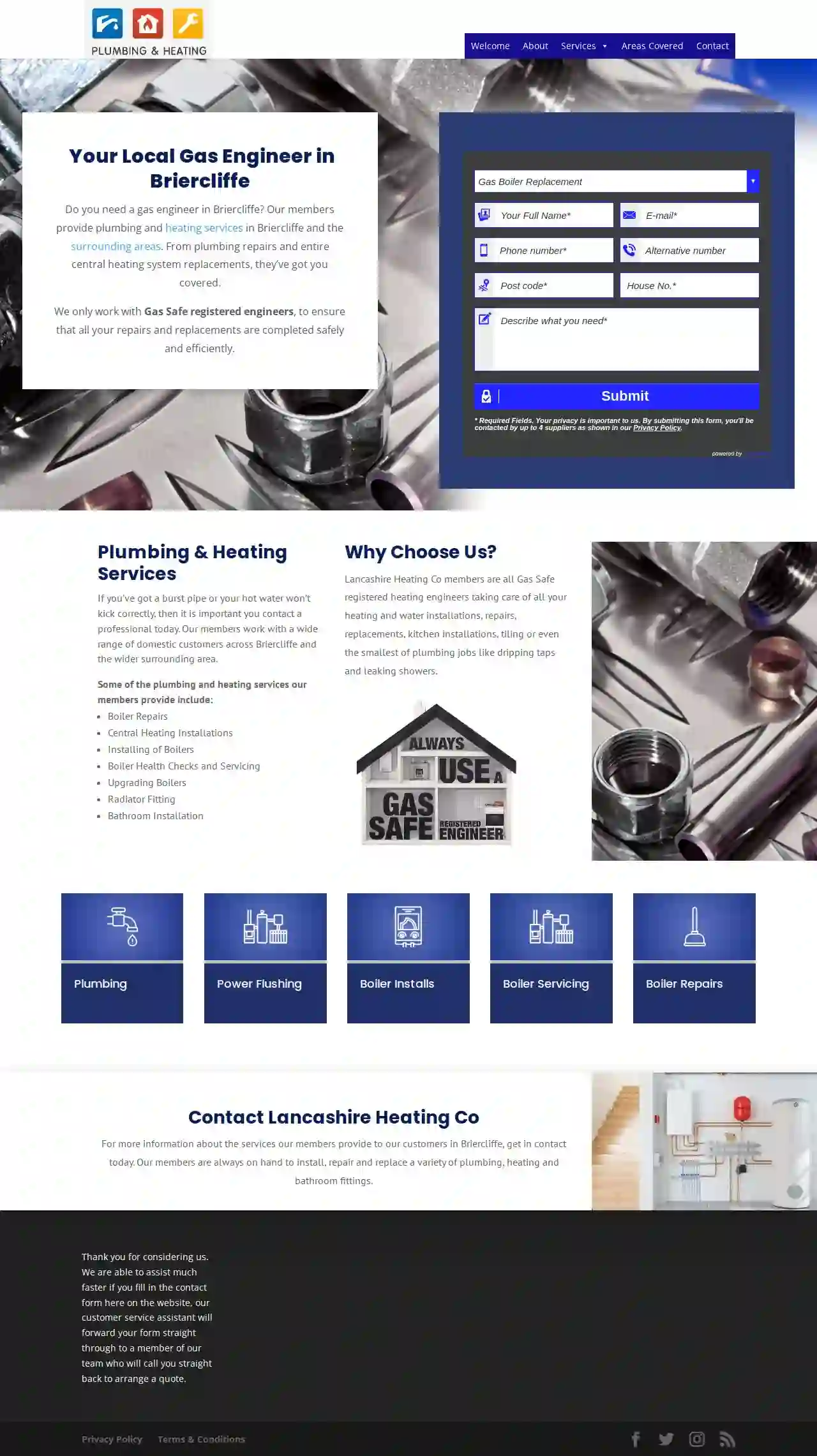
Daniel Burns Gas & Heating Services
53 reviewsLancashire, GBLancashire Heating Co provides plumbing and heating services in Lancashire and the surrounding areas. Our members are Gas Safe registered engineers, ensuring all repairs and replacements are completed safely and efficiently. We offer a range of services, including boiler repairs, central heating installations, boiler health checks and servicing, upgrading boilers, radiator fitting, and bathroom installation. Our team is dedicated to providing excellent customer service and ensuring that all our customers receive the highest level of workmanship and professionalism.
- Services
- Why Us?
- Gallery
Get Quote
Gasrite
218 Stanhill Lane, Oswaldtwistle, BB5 4QB, GBEstablished in 2001, Gasrite has served East Lancashire for over 20 years. Our focus on providing top-notch customer service has helped us grow and maintain a loyal customer base. We offer a range of services, from servicing and maintenance of gas appliances to installing cutting-edge heating systems and upgrades. Based in Oswaldtwistle, we cover the whole M65 corridor, from Preston to Colne and everywhere in between within a 25 mile radius. For peace of mind, we are Gas Safe registered (189506) and we hold comprehensive public liability insurance. Furthermore, we are registered with the Lancashire County Council Safe Trader Scheme. 70% of our business comes from repeat customers or referrals, a testament to our commitment to quality. Contact us today for all your heating, and gas needs in Lancashire.
- Services
- Why Us?
- Accreditations
- Our Team
- Testimonials
- Gallery
Get Quote
Over 12,692+ HVAC Contractors in our network
Our HVAC companies operate in Kirkham & beyond!
HVACCompaniesHub has curated and vetted Top HVAC Businesses near Kirkham. Find the most trustworthy pro today.
Frequently Asked Questions About Emergency HVAC Services
- Control Humidity: Keep indoor humidity levels between 30% and 50%.
- Regularly Change Air Filters: Change your air filters frequently.
- Clean Drip Pans and Condensate Drains: Regularly inspect and clean your AC unit's drip pans and condensate drains to prevent standing water.
- Ensure Proper Ventilation: Adequate ventilation helps to reduce moisture buildup.
- Schedule Professional Duct Cleaning: Consider regular air duct cleaning to remove mold and other contaminants.
How can I prevent mold in my HVAC system?
How do I find an emergency HVAC technician near me?
What is a dehumidifier, and do I need one?
What's the difference between a single-stage and two-stage furnace?
How can I prevent mold in my HVAC system?
- Control Humidity: Keep indoor humidity levels between 30% and 50%.
- Regularly Change Air Filters: Change your air filters at least every three months.
- Clean Drip Pans and Condensate Drains: Regularly inspect and clean your AC unit's drip pans and condensate drains to prevent standing water.
- Ensure Proper Ventilation: Adequate ventilation helps to control humidity levels.
- Schedule Professional Duct Cleaning: Consider regular air duct cleaning to improve indoor air quality.